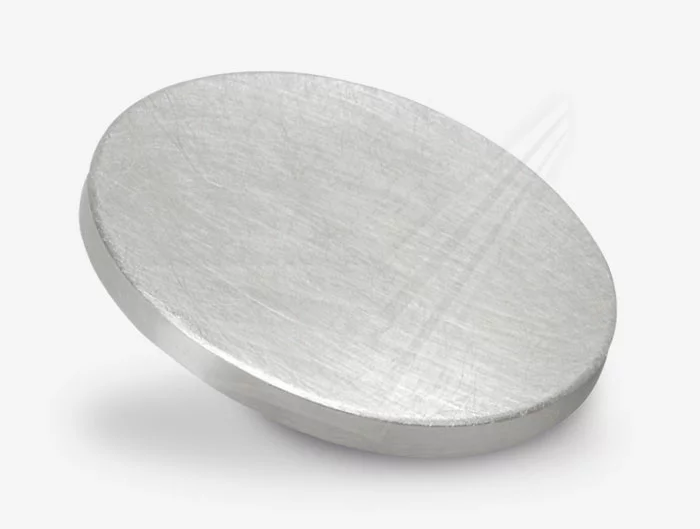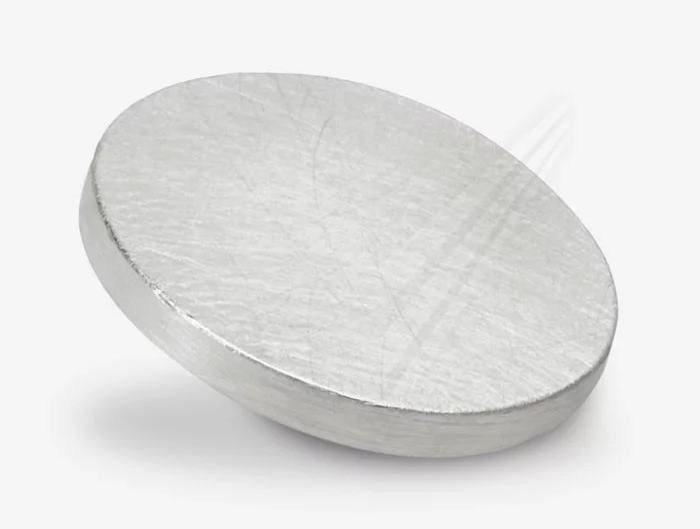

Tin (Sn) | 101,6 x 6,3 mm | 99,999%
Weight: 0.00466 kg
Diameter / thickness: Ø 101.6 mm x 6.3 mm
Purity: 99.999%
- Description
- Specification
Description
Tin is a chemical element in the periodic table of the elements with symbol Sn (Latin stannum ‘tin’) and atomic number 50. Silvery white, lustrous and very soft, it can be scratched with a fingernail. It has a low melting point and a relatively high boiling temperature.
Tin can take on three modifications with different crystal structures and densities. Natural tin consists of ten different stable isotopes, the largest number of any element. There are also 28 known radioactive isotopes.
| Material type | Tin |
| Symbol | Sn |
| Atomic weight | 118.71 |
| Atomic number | 50 |
| Colour/appearance | Metallic, silvery lustrous grey |
| Thermal conductivity | 66.6 Watt/m.K |
| Melting point | 232 °C |
| Coefficient of thermal expansion | 22 x 10-6/K |
| Theoretical density | 7.28 g/cm³ |
| Z-ratio | 0.724 |
| Sputter | DC voltage |
| Max. power density | 10 watts/square inch |
| Bonding type | Elastomer |
| Remarks | Wetted Mo.
Low sputtering power. Use of Ta-Liner in electron beam guns. Low melting point materials are not ideal for sputtering. |
* This is a recommendation based on our experience with these materials in our sputter guns. Rates are based on non-bonded targets and are material specific. Bonded targets should be operated at lower power to avoid bonding failure. Bonded targets should be operated at 20 watts/square inch or less depending on the material.




